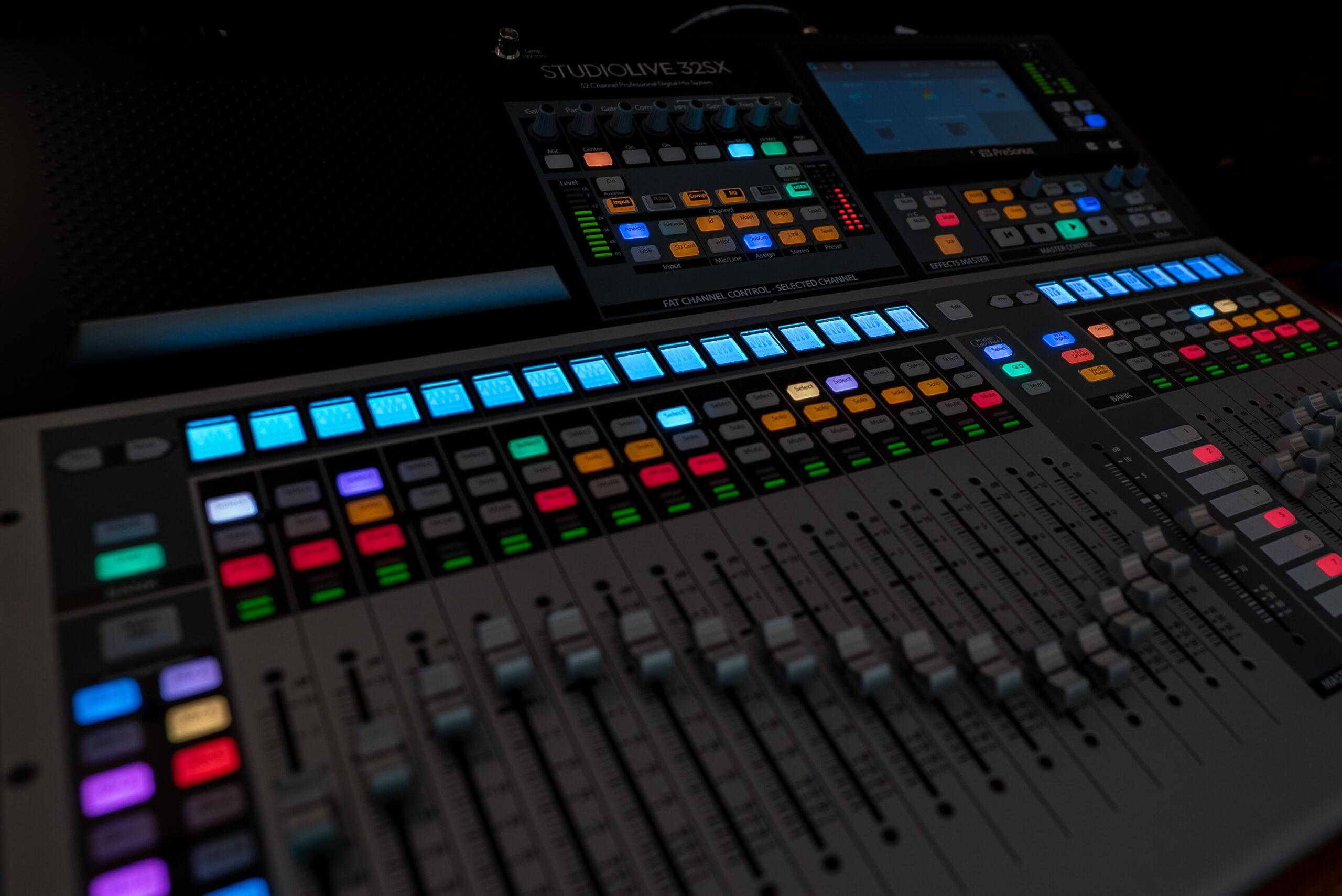
What is a digital mixer? A digital mixer is an electronic device used to combine, process, and route audio signals. Unlike traditional analog mixers, digital mixers convert audio signals into digital data, allowing for more precise control and manipulation. These mixers are essential in modern recording studios, live sound environments, and broadcasting. They offer features like built-in effects, automation, and the ability to save and recall settings. Digital mixers are popular for their versatility, compact size, and ability to integrate with other digital equipment. Whether you're a musician, sound engineer, or podcaster, understanding digital mixers can significantly enhance your audio production capabilities.
What is a Digital Mixer?
A digital mixer is an electronic device used to combine, process, and route audio signals. Unlike analog mixers, digital mixers offer more flexibility and features, making them popular in modern audio production.
- Digital mixers convert analog signals into digital data, allowing for more precise control and manipulation of sound.
- They often come with built-in effects like reverb, delay, and compression, eliminating the need for external processors.
- Many digital mixers can store and recall settings, making it easy to switch between different setups quickly.
- They usually have a more compact design compared to analog mixers, saving space in studios and live setups.
- Digital mixers can be controlled remotely via tablets or smartphones, offering greater flexibility during live performances.
Advantages of Using a Digital Mixer
Digital mixers have revolutionized the audio industry with their advanced features and ease of use. Here are some key benefits.
- They offer higher sound quality due to advanced digital signal processing (DSP) capabilities.
- Digital mixers can handle multiple audio channels simultaneously, making them ideal for complex productions.
- They provide visual feedback through LCD screens, making it easier to monitor and adjust settings.
- Many digital mixers support multi-track recording directly to a computer or USB drive.
- They often include built-in equalizers and dynamic processors, reducing the need for additional equipment.
Popular Brands and Models
Several brands have made a name for themselves in the digital mixer market. Here are some of the most popular ones.
- Yamaha's TF series is known for its user-friendly interface and high-quality sound.
- Behringer's X32 offers a great balance of features and affordability, making it popular among both amateurs and professionals.
- Allen & Heath's QU series is praised for its robust build and excellent sound quality.
- Presonus StudioLive mixers are known for their seamless integration with recording software.
- Midas M32 is favored for its superior preamps and professional-grade features.
Applications of Digital Mixers
Digital mixers are versatile tools used in various settings. Here are some common applications.
- They are widely used in live sound reinforcement for concerts, theater productions, and public events.
- Digital mixers are essential in recording studios for tracking, mixing, and mastering music.
- They are used in broadcast environments for managing audio in TV and radio productions.
- Houses of worship use digital mixers to manage sound during services and events.
- Digital mixers are also employed in educational settings for teaching audio engineering and production.
Features to Look For
When choosing a digital mixer, certain features can make a significant difference. Here are some to consider.
- Look for mixers with motorized faders for precise control and automation.
- Ensure the mixer has enough input and output channels to meet your needs.
- Check for compatibility with your existing equipment and software.
- Consider mixers with built-in Wi-Fi for remote control capabilities.
- Look for models with high-resolution touchscreens for easier navigation and control.
Common Challenges and Solutions
Using a digital mixer can come with its own set of challenges. Here are some common issues and how to address them.
- Learning curve: Digital mixers can be complex, so take advantage of online tutorials and manuals.
- Firmware updates: Keep your mixer’s firmware updated to ensure optimal performance and access to new features.
- Latency issues: Use high-quality cables and interfaces to minimize latency during live performances.
- Backup settings: Regularly back up your mixer settings to avoid losing important configurations.
- Compatibility: Ensure all your equipment is compatible to avoid connectivity issues.
Future Trends in Digital Mixers
The world of digital mixers is constantly evolving. Here are some trends to watch out for.
- Integration with AI: Future mixers may use artificial intelligence to automate tasks and improve sound quality.
- Enhanced connectivity: Expect more mixers to offer seamless integration with various devices and platforms for a more connected experience.
Final Thoughts on Digital Mixers
Digital mixers have revolutionized the way we approach sound mixing. They offer versatility, precision, and convenience that analog mixers just can't match. With features like recallable settings, built-in effects, and remote control capabilities, they make life easier for sound engineers and musicians alike.
Whether you're working in a studio, live venue, or even at home, a digital mixer can significantly enhance your audio quality and workflow. They allow for more creative freedom and technical control, making them a valuable tool in any audio setup.
So, if you're still on the fence about making the switch, consider the long-term benefits and how a digital mixer can elevate your sound game. Investing in one could be the game-changer you need for your audio projects.
Was this page helpful?
Our commitment to delivering trustworthy and engaging content is at the heart of what we do. Each fact on our site is contributed by real users like you, bringing a wealth of diverse insights and information. To ensure the highest standards of accuracy and reliability, our dedicated editors meticulously review each submission. This process guarantees that the facts we share are not only fascinating but also credible. Trust in our commitment to quality and authenticity as you explore and learn with us.
